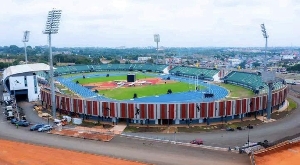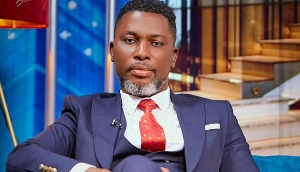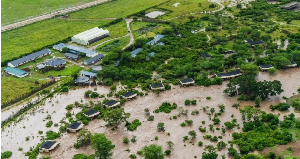- Home - News
- TWI News | TV
- Polls
- Year In Review
- News Archive
- Crime & Punishment
- Politics
- Regional
- Editorial
- Health
- Ghanaians Abroad
- Tabloid
- Africa
- Religion
- Election 2020
- Coronavirus
- News Videos | TV
- Photo Archives
- News Headlines
- Press Release
General News of Tuesday, 22 April 2003
Source: gna
IGP tells police personnel to preserve human rights
Nana Owusu-Nsiah, Inspector General of Police (IGP) on Tuesday charged the police to recognise the promotion and protection of fundamental human rights of the citizenry as a key factor in the discharge of their duties.
He said police personnel should recognise that they must use methods that are legally permissible "or else we break the law ourselves." The IGP who was opening a five-day national workshop on Human Rights Issues for 65 Police Station Officers said, "Lots of inconveniences from undue delays are all actions not to be tolerated in the present democratic dispensation being nurtured in Ghana."
The officers drawn from the Southern zone of the country were the first batch of 626 offices who would benefit from the course under the phase two programme of the Good Governance Programme initiated by government to bring the police service to the level of internationally accepted democratic mode of policing.
It is being held under the sponsorship of the United Nation Development Programme (UNDP) in collaboration with the Commission for Human Rights and Administrative Justice (CHRAJ). Nana Owusu-Nsiah described reports from some police stations on the treatment of complainants and suspects, dealings with the members of the public and their service delivery in terms of response to distress calls and investigation of cases as something that left much to be desired.
The IGP said effective law enforcement required the use of various professional as well as operational methods and strategies adding, "depending on the nature of any particular duty to be performed, one method or a combination of methods and strategies can be employed."
Nana Owusu-Nsiah said the police today must know that there is a heightened civil liberty consciousness among the citizenry, which they should jealously guard against to avoid any infringement on their constitutional rights and freedoms.
The IGP told the police, "The fact that we are law enforcement officers does not in any way place us above the law. On the contrary we have a duty to operate strictly within the parameters of the law to avoid violating the rights and liberties of the members of the public...from lawlessness."
Emile Short, Commissioner of CHRAJ said the onerous task of the police service required a great exercise of circumspection and restraint in their interaction with the public in the use of force in enforcing law and order.
He said law enforcement by its very nature could easily degenerate into violation of human rights and added that the police ought to be conversant with national, regional and international standards formulated to ensure a proper balance between law enforcement and respect for human rights.
Short said the violations of the fundamental human rights of some citizens by some personnel had led to the undermining of the authority and integrity of the police to enforce the law.
He deplored negative perception of some policemen that human rights standards were obstacles to practical policing objectives. He said human rights standards were legal imperatives and gross violations of them could not be justified in any circumstances.
"Human Rights abuses can not be justified on grounds that they are necessary to secure other desirable ends such as public order or the prevention and detection of crime. Human Rights abuses are themselves breaches of public order," he noted.
Short said the constraints and challenges of the police should provide no excuse for the police to violate the fundamental human rights of the people they were obliged to protect. He advised them to balance the duty to promote and protect human rights with the requirements of good and effective policing.
The Commissioner expressed the hope that the workshop would help the police officers in the discharge of their duties and would equip them with the relevant human rights standards and norms relating to their work.
The workshop would examine the 1992 Constitutional provision on human, other relevant laws and the international human rights instruments such as the Universal Declaration of Human Rights, and the African Charter on Human Rights.
Other relevant documents to be looked at included, the Ghana Police Service Instructions, United Nations Body Principles for the protection of persons under any form of detention or imprisonment and the UN Basic Principles on the use of force and firearms by law enforcement officials.










